Here’s How in Touch with Your Body You Are, Based on Your Personality Type
Have you ever wondered if your personality type has anything to do with how conscious (or unconscious) you are of hunger, thirst, fatigue or illness? According to many typologists, our mental processes have a significant part to play in how aware we are of our inner body and its needs. Find out how your personality type impacts your observance of inner-body health.
Not sure what your personality type is? Take our new personality questionnaire here. Or you can take the official MBTI® here.
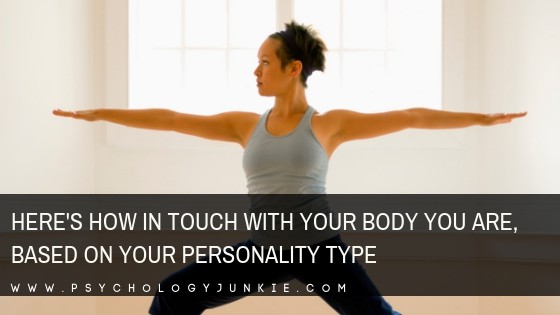
Here’s How in Touch with Your Body You Are, Based on Your Personality Type
The ENFP and ENTP Personality Types
ENFPs and ENTPs tend to struggle with noticing their inner-body needs. Because they are so focused on possibilities in the outer world, tuning into the inner physical world can be difficult. Many ENFPs frequently forget to eat, drink, or get enough sleep as they move from one project or idea to another. This tends to result in a back-log of physical demands that suddenly “explode” on them. They may find themselves crashing for a weekend, never leaving their bed or eating everything they can find in their refrigerator. During these times they switch from being out of touch with their bodies to hyper-focused on inner-body sensations. It’s relatively normal for them to worry about their health during these times, misinterpreting illness or discomforts for life-threatening diseases. Many ENPs report that setting reminders on their phone allows them to stay on top of hydration, food intake, and getting to bed on time.
“When I was a kid if I had been defiant and a pain my mom would finally ask “Have you eaten today?” 9/10 my answer was “No”. She would then tell me I wasn’t allowed to talk to her until after I ate. After I ate I usually did feel bad about my behavior and apologized.”
– Madeline, an ENFP
“I’ve noticed that if I deliberately ignore my body’s physical needs, there is a negative impact that reflects on my performance and quality of work ethic. I used to not care so much about it (when I was younger) but it’s definitely something that’s evolved over time for me, to the point that by shifting my priorities and adjusting my day so that the “Si needs” are met, the quality of my life actually increases and my Ne (+Fi) feels less pressured and more “free” to do whatever typically pleases me.”
– Nate, an ENFP
“Oh wow, I am so unaware of my body’s needs it hurts. Literally, sometimes. I will wait till the last minute to pee, I don’t eat with regularity, usually waiting till I’m absolutely famished. Doing things like brushing teeth and showering are low priority….”
– @NoFunOverlord, Twitter User, ENTP
Read This Next: The Powerful Mental Processes of ENFPs, ENTPs, INFPs and INTPs
The INFP and INTP Personality Types
INFPs and INTPs are usually more in-tune with their bodies than their ENP friends. However, it still isn’t a primary area of focus for them. They are more focused on exploring theoretical ideas and possibilities than they are on tending to actual physical needs. However, as INPs grow and mature they tend to recognize the importance of self-care, rest, and wellness. Especially in their 20’s and 30’s, INPs tend to experience a newfound joy in resting, replenishing their energy, and doing things that provide inner physical comfort. Until that point, they can forget to eat enough, drink enough, or sleep enough (or they may eat to excess without realizing they are full).
“If I’m bored out of reality, which is most days, I manage to eat at the right time, at the right amount, and I know when I’m hungry, etc. If I find something exciting then the eating schedule goes out the window. I’m not hungry and I bump into more things, but I feel alive. I am working on this, so that I’ve got a better balance. Bad Si behavior leads to unfulfilled Fe, and that equals hell for me as a whole.”
– @BelatedINTP, Blogger and Twitter User, INTP
“I’m more likely to eat for emotional reasons than for hunger, hunger is easier to ignore if I’m busy. I notice when I’m tired but will push through if I’m involved in something. I do notice when I am uncomfortable, my skin too dry or scalp itchy. I’m more likely to notice internal physical discomfort than something outside of me. I’m fussy about flavors and textures, I feel the heat and the cold, changes in humidity. But maybe more now than when I was young.”
– Christine, Typology coach
Read This Next: The Unique Intelligence of the ENFP, ENTP, INFP and INTP Personality Types
The ENFJ and ENTJ Personality Types
ENFJs and ENTJs tend to have a very difficult time paying attention to inner-body sensations and needs. They are usually so fixated on their long-term goals and visions that their own comfort becomes a very low priority. Always strategizing, imagining, and/or working towards an idea, they have a tendency to feel guilty if they tend to their own comforts. Sitting still and just relaxing can make them restless because they feel that every moment should be put to “good” (long-term, big-picture) purpose. The physical comforts of today get in the way of the grand visions of tomorrow for ENJs. This can backfire eventually when all the repressed physical needs suddenly flare up and cause them to become sick, burned-out, or angry. As ENJs mature and grow they tend to learn through experience that self-care and rest is important.
“Physical needs and comforts are always tricky with me. I do not notice that I’m hungry almost ever until I’m starving. And even then, I can choose to ignore it depending on what I’m doing. I’m pretty good with staying hydrated now, but I had to learn to pay mind to thirst.”
– Denzel Mensah, ENFJ Type Expert and YouTuber
“I’d say I never aim to make myself comfortable, and only notice when I am uncomfortable. I set out to reach a goal and don’t consider my physical “needs” until I’m dying of thirst, about to pass out from exhaustion, or my Dr. tells me my bloodwork is way off. Physical comfort is not something that ever factors into the equation and I am never proactive about it. It’s always in extremes. I almost can’t self-regulate or make small, incremental/routine decisions for my health. It seems pointless to disrupt my pursuit of a goal. I also don’t learn from my mistakes in this way. A negative experience from neglecting my health or comfort doesn’t leave an impression or impact on me. I’ll neglect myself again the next day in pursuit of another goal.”
–Kat, ENTJ Twitter User
“I always notice my needs much later than other people, or I will put them on the backburner in favor of achieving a goal. Eventually, there comes a point where my body goes “HEY, YOU HAVE TO PAY ATTENTION NOW”, and then I turn into a huge baby. I also have issues with decoding what my body is telling me, or understanding that I may have “felt a certain way before”. I feel like every situation is something new. I tend to either not notice or obsess, and it’s hard to see an in-between.”
– Kat, ENFJ Enneagram Coach
Read This Next: The Unique Intelligence of the ENFJ, ENTJ, INFJ and INTJ Personality Types
The INFJ and INTJ Personality Types
These two personality types tend to be fairly unconscious to their body’s needs and signals. While they are relatively sensitive to what’s going on outside of their body, the inner physical world can remain mysterious. They may take care of their health or appearance because they want it to match an inner ideal of how they’d like to appear or what they’d like to achieve in life, but they tend to lose sight of things like proper rest, food, and hydration. The reason for this is that introverted sensing, the mental process associated with inner-body sensation, is the least-conscious of their eight mental processes. The world of ideas, theories, and underlying meanings is much more fascinating to the INJ than the physical world inside themselves. Consistent healthy routines can be much harder for them to maintain than it is for other types. That said, with steady reminders and proper planning INJs can grow to make self-care part of their normal routine.
“I notice physical comforts/needs if there is a pleasure associated with them. Like if I crave a favorite snack or dessert, but once that compulsion is gone, I forget about it and I just eat because I feel hungry. There are times where I am so busy with all the things that I disregard all physical comfort until I’m in pain. (ie. Forgetting to eat until I am starving. Standing for 12 hours until my legs are about to give up. Sleeping for 2 hours a day until I feel delusional.) When I finally reach that state I get frustrated by the limitations of my body. There was a time where I was in peak physical “care” mode, I drank enough water, ate healthy, exercised every day, went to sleep at the right time but that was because I had some autoimmune attack and I decided to shape up The only way I achieved that was through a list that I had to check every day (treated it like a game). And once my schedule was disrupted and my health was better, I stopped the list/routine and now I just wing my Si as I go.”
– M, INFJ Twitter User
“I’m completely blind to my physical needs until very, very late. For example, I regularly forget to eat. Once I notice I’m hungry, that feeling can no longer be merely called “hunger”; it feels like I’m about to drop dead. Very hard for me to have an eye on this.”
– Harald, an INFJ
“I tend to be oblivious if my mind is actively engaged. I was the student who could study 12 hours straight with few to no breaks. My SJ and SP friends were the ones who brought food/reminded me to take breaks.”
– Steph, an INTJ
Read These Next: 3 Weird and Wonderful Secrets About the INFJ
3 Weird and Wonderful Secrets about the INTJ
The ESFP and ESTP Personality Types
ESTPs and ESFPs have an extremely focused awareness of the world around them. Their dominant mental process, Extraverted Sensing (“Se” for short), enables them to take in a lot of sensory data in the outside world and interpret it in real-time. Because these types are so focused on outer-world interaction and experience they can lose sight of what’s going on inside themselves, especially if they are absorbed in a task. They are usually aware of sensations like hunger and thirst, but they can ignore things like fatigue or a slight illness if they are wrapped up in an activity. They are often physically graceful and very aware of where they are in relationship to the world around them, but really focusing inward tends to get put on the backburner. They often enjoy trying new things and pushing themselves to the limits. In fact, according to the MBTI® Manual, ESTPs and ISTPs are at the highest risk for setbacks related to overdoing things physically and developing long-term pain as a result.
“Being aware of my body’s need to eat and drink is unavoidable to notice. I do feel like I can surprise my physical sensations and needs if I’m in the middle of something more important. If when the opportunity to blend my needs with what has to be done arises I will definitely take advantage of it. However, sensing my physical limitations is something completely different. I can push my body to do things I didn’t know it was capable of. And sometimes I get hurt in the process.”
– Daniel Storm, an ESTP
“I need plenty of sleep – I don’t function well without it. It’s not hard at all for me to notice what my body needs unless I’m busy or having fun. Setting routine, daily “healthy” rules for myself is boring and I don’t tend to do that – it can take me a while to realize I’m full or I’ve had enough to drink, things like that.”
– Cara, an ESFP
The ISFP and ISTP Personality Types
ISFPs and ISTPs are usually aware of their basic physical needs. Things like hunger, thirst, fatigue, and illness don’t usually evade their senses. However, their skill is usually focused on sensing their surroundings and the details in their outer environment. If they are immersed in an activity or experience they can repress internal alarms or sensations so that they can totally immerse themselves in the moment at hand. This works to their advantage during crisis scenarios when a focus on what’s going on around them is more important than a focus on the inside world. These types can struggle to stick to routine healthy matters. They prefer to be spontaneous and flexible and repeating the same exercises every day or going to bed at the same time every night can feel boring or de-motivating to them. They tend to do better when they can mix up their routine and experiment with a variety of recreational activities and experiences like rock climbing, biking, or swimming rather than a routine calisthenics workout.
“When it comes to physical needs, those always come first: hunger, thirst, fatigue, illness, etc. Knowing the best remedies and working in a hospital also taught me what to do and what to avoid.”
– @MadameKidd, ISFP PersonalityYouTuber
“I absolutely know when I’m hungry/thirsty/sleepy. I organize my life around meals and sleep. Not kidding lol. My husband makes fun of me because if I’m in a bad mood he just waits for me to take two bites so I’ll be in better spirits. I also know if I feel very emotional but feel as though there hasn’t been a release, then I need to journal. I don’t do that as much as I should, but every few months I get this anxiety like something has built up and needs to come out. Then I write for like 2 hours straight. Also, I know when I need to spend serious time with God. Technically that’s every day but if for whatever reason I haven’t been like I should, I really do feel empty and time spent with Him or lack thereof really bleeds into every single aspect of my life. Also, I’m not much of a hugger but I know when I need a hug and I know when I need to cry and I know when I need to listen to gospel music in the dark on the bed or soft soul/jazz music in the bathtub, etc. Finally, I always know I need to exercise but I never do lol.”
– Jamila Mensah, ISFP Singer (Check out her singing voice here!)
Read This Next: The Unique Intelligence of the ISFP, ISTP, ESFP and ESTP Personality Types
The ESFJ and ESTJ Personality Types
ESFJs and ESTJs value a comfortable routine and are usually aware of how things impact them physically. They are usually highly aware of signs of illness, hunger, fatigue, or thirst. They can also run the risk of minimizing these needs as they work to get a job done or meet the needs of people. Both types are very focused on productivity and goal achievement and can de-value physical needs and signals as they work to reach a benchmark of achievement or harmony in their environment. That said, the healthier and more mature these two types become the more they prioritize health, comfort, and wellness.
“I notice flavor-related things that other people don’t. I’m a very picky eater, and sometimes it drives other people crazy. I’m extremely in-tune with illness. I notice right away when something isn’t right with my body and prioritize rest. Sure, I like to get things done, but if you don’t have your health you’ve got nothing. Right?”
– Candace, an ESTJ
“I really enjoy taking care of the physical needs of my family. For myself, I can forget about it because I have so many kids (five). But before I had kids I prioritized self-care a lot more. A long restful nap on a Saturday afternoon? Who doesn’t like that! Either way, I can’t imagine “ignoring” being sick. How is that possible?”
– Shannon, an ESFJ
Read This Next: The Unique Intelligence of the ESFJ, ESTJ, ISFJ and ISTJs Personality Types
The ISFJ and ISTJ Personality Types
ISFJs and ISTJs are the two types most likely to be aware of inner-body sensations like hunger, thirst, fatigue, or illness. In fact, it can feel worse to them to be sick than to other types because they feel things so intensely. Both of these types have a dominant mental process called Introverted Sensing (or “Si” for short), this process causes them to focus inward on what their body is telling them and helps them to prioritize healthy routines and consistent relaxation. Some ISJs can warp this process, though, and enjoy the sensation of food so much that they over-eat, but this is less common because they usually can sense signs of hunger or fullness quickly.
“One of the most commonly overlooked features of Si is its role in bodily sensation. Namely, Si monitors internal bodily affairs, ensuring that physical needs are optimally satisfied. Being an introverted function, Si is more intensive than Se is, which can make ISFJs more sensitive to a variety of sensory stimuli such as lighting, room temperature, noise levels, sleeping surfaces, etc..
The bodily role of Si can also influence ISFJs’ health. It may, for instance, allow them to be more attuned to when they are full, thereby preventing overeating. On the other hand, it could play a role in health problems, such as hypochondriasis, in which normal sensations become amplified and interpreted as signs of illness.”
– A.J. Drenth, Typologist and Founder of Personality Junkie
“For me, I’m sooooo sensitive and aware of my body. I can be drinking a cup of coffee and know I need to put it down because it’s too much caffeine. I know when I’m thirsty, i just don’t always give my body what it needs. It’s honestly weird and I wish I could be more normal ????”
– Gabrielle, an ISFJ
“I am almost always aware of hunger, illness, fatigue, etc,. except drinking for some reason (pretty sure that’s just me though). Routines are easy; if there is any particular food I want to eat or not eat, I can succeed if I put my mind to it. Unless I am very much preoccupied, I will always notice if something has changed in my body (for example, a new feeling of sickness).”
– A.J. an ISTJ
Read This Next: 10 Unique Qualities of the ISFJ, ISTJ, ESFJ and ESTJ Personality Types
What Are Your Thoughts?
Does the information in this article ring true for you or no? Share your thoughts and experiences in the comments!
Find out more about your personality type in our eBook, Discovering You: Unlocking the Power of Personality Type.
Subscribe to Our Newsletter

Want to discover more about personality type? Get the inside scoop with Susan Storm on all things typological, along with special subscriber freebies, and discounts on new eBooks and courses! Join our newsletter today!



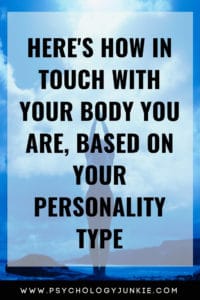



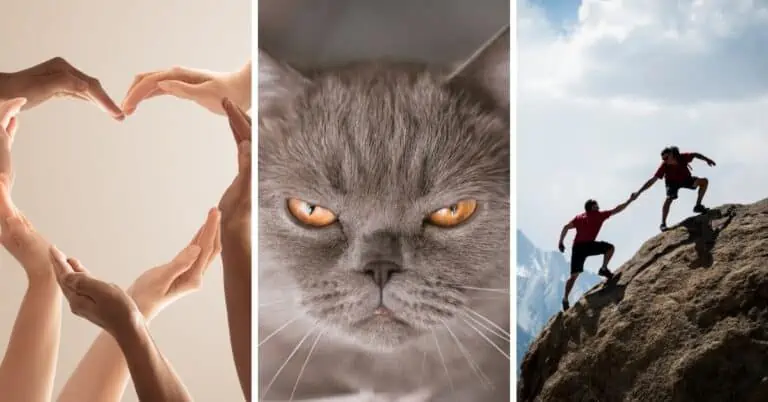
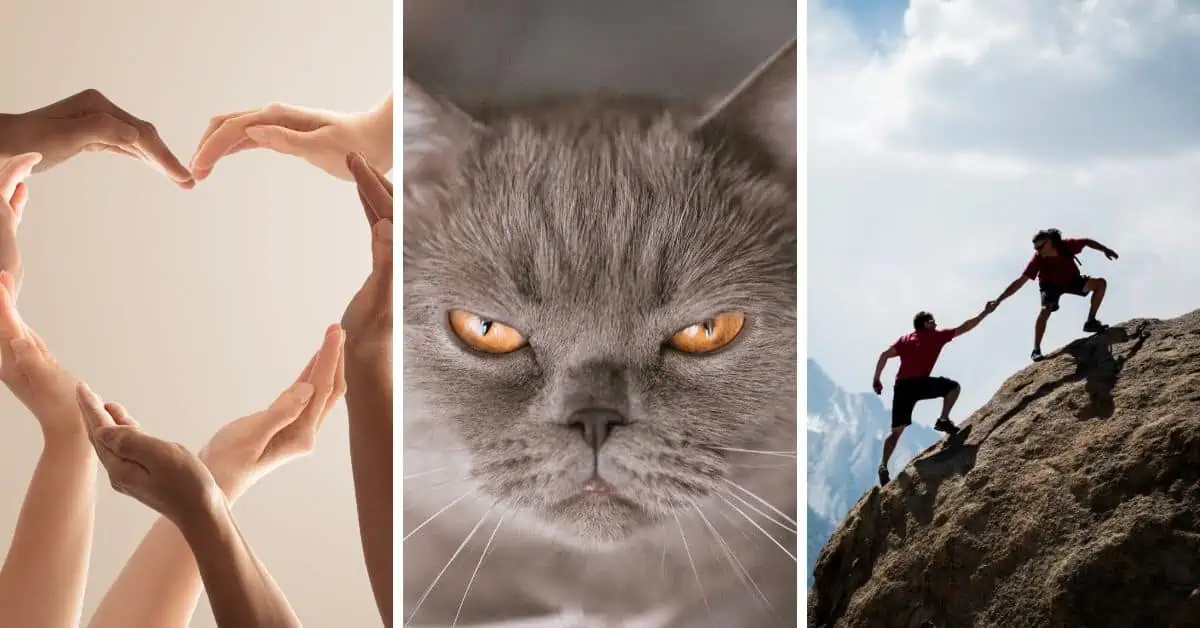


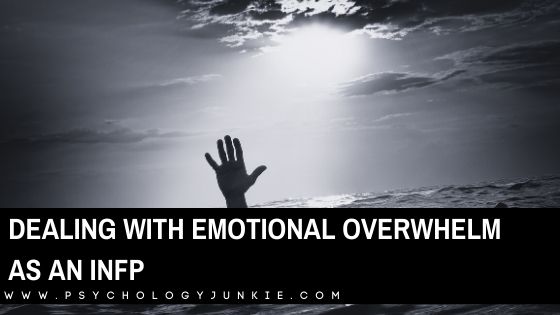
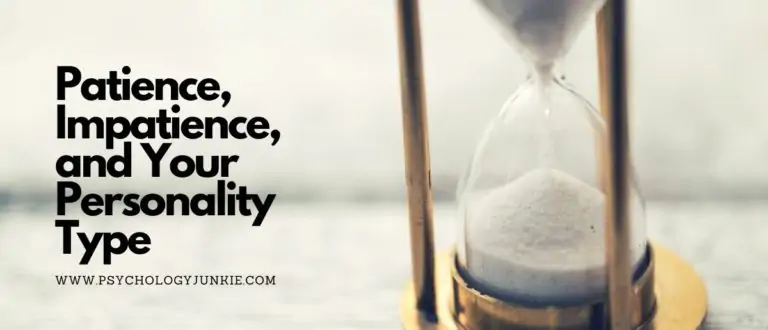
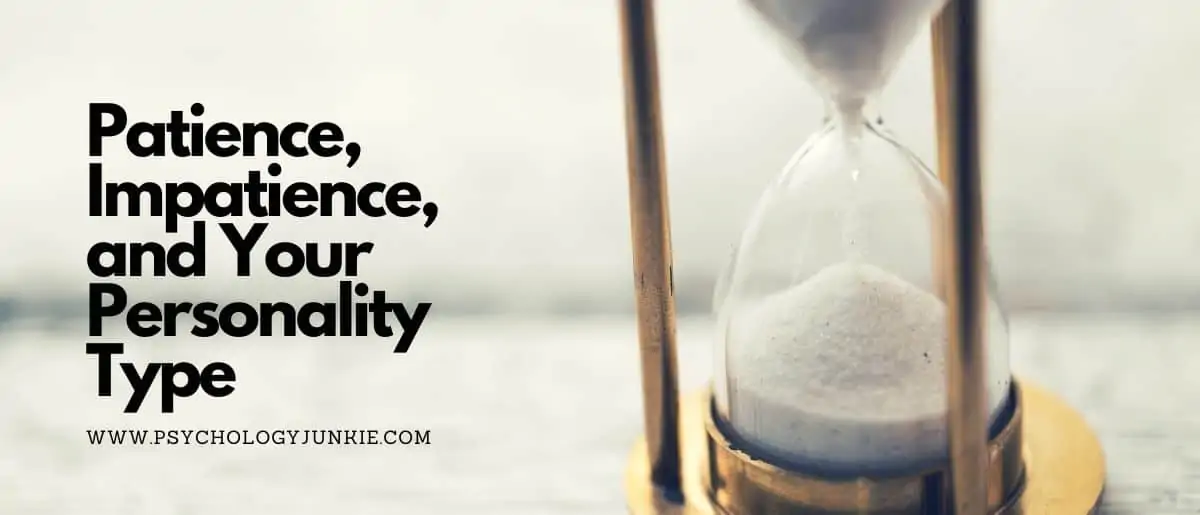
I am an INFJ and I can’t say that I am oblivious to my physical needs. I gain weight easily so I have to be careful of what I eat. I have low blood sugar so need to eat regularly and I am very conscious of my rest because I used to work nights and I need a lot of sleep. I am less social because I would rather be at home and get my rest.
Also I take vitamins and supplements to maintain my health so I rarely get sick or have to take time off. I am conscious of aches and pains because of arthritis.
I am also very conscious of how stressed I am and try to eliminate things from my life that bother me.
I just don’t feel I fit the INFJ in this article.
I am an INFJ and I couldn’t agree with you more!
This could not be further than the truth for me, who has taken the Myers Briggs personality test several times over the past ten years with the same result=INFJ. I am extremely in tune and have hypersensitivity to my body. INFJs are intuitive, and that ability doesn’t skip over our acute awareness of self, both physical and psychological. Perhaps because our personality is rare, your assessment was difficult to make based on the low sampling data ; )
I don’t think that’s exactly the case. INFJs are attuned to their inner perceptions of life/ideas, not to bodily sensations. If anything, it sounds like you have a well-developed Si (which is very cool ;)) INFJs (and INTJs) are simply not attuned to their bodily sensations until years have passed. As an INFJ myself (who interacts with a lot of INFJs online and a few in person), we just don’t pay attention to our bodies as much (excepting the whole “pursuit of the ideal” Ms. Storm mentioned). But anyways, thank you for sharing; it’s interesting to get different viewpoints on things, isn’t it?
Barbara, are you sure you aren’t an ISFJ? Because the things you are describing sound more like an ISFJ’s dominant Si rather than an INFJ’s inferior Se. Tests can often be inaccurate.
As an ISFJ, I agree with your assessment, but my concern for others often wins out. I will usually give the last slice/serving to someone else if I see they want it too. I do feel sickness coming on, and I do what I can to lessen it. At the same time though, I will power through in order to fulfill my duties, often crashing hard afterwards.
Attention to bodily needs is part of INTJ logic. We may not like it, or at least I don’t and don’t get a lot pleasure from eating well or looking good, but I don’t ignore the prerequisites for engaging in more classical intj mental activity.
This is so identical to what my INTJ boyfriend says, about having to eat and dress himself that it’s actually creepy. Are you actually him?
I personally thought this was spot-on. Recently, I came to terms with the fact I was stressed after 3 whole weeks of not noticing. It’s stereotypically INFJ hahaha. I liked learning about the INP’s reaction to bodily sensations; my brother is an INTP and he confuses me at times because most things that would bother me (i.e not having proper bed-clothes whyyyy) don’t bother him but certain things do (long sleeve shirts). It’s interesting to see how INPs respond to it, especially in the comments; and the ESxPs were spot on. My mother is an ESFP and while I love her to death, I do get worried when she values the experience right now over the benefit later. Anyways, thank you for this!! You always write things so clearly, well and with consideration towards others.
I think the image of the INFP described here is not unlike myself…. certainly now, once I’m in my thirties, I’ve gotten a lot better at managing my physical needs. At the same time, I’ve always been acutely aware of things like what my bowels are doing, building nausea or headaches, whether my skin is dry or wet, how tired I am, etc… and those have a HUGE effect on my mood. And at every change of the seasons, things like the quality of light, temperatures, and humidity levels all have a huge impact as well, such that I get a flood of memories about all the things that have happened in my life at the same time of year before. I would say that my newfound aptness at self-care comes less from developing Si (which has always more or less been there in my life) as from becoming more comfortable with using Te, towards recognizing and taking concrete actions in response to my needs, so that I remain in control rather than my sensations controlling me.
Well, this post is kind of comforting. I’m an ISFJ and your description sounds accurate now that I think of it. I do notice easily if there is something my body needs, like food or lower temperature or moisturizer for dry skin. I’ve learned to answer to those needs the hard way… If I don’t eat, my hands start to tremble because of low blood sugar. A small headache might turn to migraine if I don’t do something about it. If I don’t take care of those needs, I either completely lose my ability to function or constantly get distracted by how bad I feel. I’ve always wondered how some people can go through a day and just… forget to eat. I mean, don’t they feel any different if they skip meals? I don’t get it. My husband is one of those and he’s an INFJ.
I think for Si-doms like yourself, you’re a LOT more sensitive to it. Because I’m INFP and my Si is in the tertiary position, I AM capable of ignoring my bodily needs if I want to, and moreover, I often am pretty good at recognizing discomfort, but less good at connecting the discomfort to the bad habit / neglect that caused it in the first place. Like “I should eat ahead of time if I don’t want to feel hungry and tired later on” or “exercise hurts, but it’s only temporary, and I’ll feel much better for doing it in the long run, so I should commit to finishing the 30 min on the treadmill I said I was going to do.” I wasn’t really able to tell myself these things (and act on them!) until I was nearly 30, whereas most Si-doms I have known are almost always much better at these things.
But I will never be as bad at this as an Se-inf like an INFJ or an INTJ (which my boyfriend is). These people kind of have the opposite problem… I’m vulnerable to letting discomfort and pain overtake my emotional state (another reason why I’ve forced myself to get better at dealing with it) but INxJs go the other way and put their bodies through hell because they’re interested in gathering data from the outside sensory world and always pushing their bodies to do more and more in search of it. As children they’ll love to read and daydream, but also will get up to some pretty dangerous hijinks in the name of their scientific / imaginative pursuits. When they’re older, that usually becomes “I don’t need to break for lunch or dinner, that’s a waste of time, I’ll just sit in this library and study all day.”
If you look at it from their perspective, WHY would they want to devote any time to eating when there are so many more exciting things in the world that they could be spending their time reading about? (Every INJ I’ve met has far preferred reading to eating.)
I would also say that this article isn’t a great fit in terms of describing my brother, who I am quite sure is ENFJ. He really loved to play sports from an early age and always makes time to exercise even now as an adult. He’s prone to taking risks and occasionally overextending himself (in large part because he prefers to experience rather than preserve his physical sense of well-being, the article did get THAT right), but he rarely goes so far as to seriously injure himself, and he’s assiduous about doing the things it takes to keep his body in top form. Being a J type, he’s better at sticking to a regular routine than I am, so I would say he’s more body-aware than me, in some ways.
However, the INTJ description is spot-on to describe my boyfriend. He is SO oblivious. He will often not have eaten all day, insist he doesn’t need to eat, only for me to make dinner and for him to immediately wolf down four servings and fall asleep on the couch.
During exciting activities, I don’t know fatigue and hunger. And the material comfort can be my last concern when the work is… Intellectual… Small detail that you forget to specify. The rest of the time I am easily in the sensorial excesses. A NJ is not a SJ. The sensory is important, it’s not an option, Jung said NJs are primitive SP.
As an INTJ, this is astoundingly accurate. I nearly had to go to the hospital due to dehydration because I was so engrossed in academic work and reading.
Yeah as an ISFJ I’m super sensitive to my body and things like hunger, thirst, and illness. I couldn’t go a whole day without at least having 2 meals.